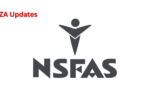NSFAS 2025 Rules Could Disqualify Students with Failed Modules. As South Africa moves toward a more accountable and results-driven higher education system, the NSFAS 2025 disqualification for failed modules and repeated courses is set to become a major policy shift affecting thousands of students.
The National Student Financial Aid Scheme (NSFAS), which has supported countless learners from disadvantaged backgrounds, will implement new rules from 2025 that could see students lose their funding if they do not meet minimum academic performance requirements.
Understanding the NSFAS 2025 Policy Shift
The NSFAS 2025 policy changes reflect a growing emphasis on student accountability and responsible fund allocation. These updated rules aim to ensure that public funds are channelled to students who are progressing in their academic journey and are committed to completing their qualifications.
- Students must pass a minimum percentage of modules annually to maintain their funding status.
- Failing the same module multiple times could result in NSFAS suspension or complete disqualification.
- Institutions are expected to enhance academic support services for at-risk students.
- Appeals processes will remain available for those facing extenuating personal or academic circumstances.
- There is a new emphasis on transparency and communication between students, institutions, and NSFAS.
How These Changes Impact South African Students
If you’re currently receiving financial aid or planning to apply in the future, here’s a clear breakdown of the likely consequences of the updated rules:
| Criteria | Impact on Students |
|---|---|
| Failed Modules | May lead to temporary or permanent suspension of funding |
| Repeated Courses | Increased risk of NSFAS disqualification |
| Academic Progress | Minimum pass rate is now mandatory |
| Appeals Process | Still available with valid documentation |
| Institutional Support | Improved access to tutoring and counselling |
| NSFAS Communication | Better student engagement and clarity |
| Policy Awareness | Vital for compliance |
| Accountability Focus | Encourages students to take ownership |
Strategies to Maintain NSFAS Eligibility in 2025
To safeguard your financial aid, it’s essential to become proactive about your academic performance. Here’s what you can do:
| Action | Benefit | Implementation | Outcome |
|---|---|---|---|
| Monitor Grades | Early warning signals | Use your university’s online portal | Improved academic performance |
| Seek Help | Academic support access | Visit tutors or student centres | Better understanding of modules |
| Plan Ahead | Manage time effectively | Create a balanced schedule | Reduced stress and burnout |
| Stay Informed | Know the rules | Attend NSFAS webinars or workshops | Avoid unintentional disqualification |
| Engage Peers | Collaborative learning | Join study groups | Knowledge sharing and support |
| Review Policies | Know your obligations | Check NSFAS updates regularly | Maintain eligibility |
| Prepare Appeals | Stay ready for challenges | Collect evidence/documentation | Potential aid reinstatement |
Addressing Common Concerns Around NSFAS 2025 Rules
Let’s explore some of the main concerns raised by students and universities regarding the new NSFAS academic performance policy:
Concern: Will this policy create more stress for students?
Clarification: While it introduces more responsibility, the aim is to encourage consistency in academic progress, not to punish students unfairly.
Concern: What about students facing real-life challenges?
Response: The NSFAS appeal process remains in place. If you experience financial, medical, or family hardships, you can submit a formal appeal with supporting documents.
Concern: Is there enough support for struggling students?
Answer: Yes. Universities are required to offer enhanced academic resources, including tutoring, counselling, and academic advising.
Practical Resources for Struggling Students
Universities across South Africa are boosting support systems to help students who may be at risk of NSFAS disqualification due to failed modules. Here are some resources to keep on your radar:
| Resource | Contact Information |
|---|---|
| Tutoring Services | [email protected] |
| Counselling Centre | [email protected] |
| Academic Advising | [email protected] |
| Financial Aid Office | [email protected] |
| Library Support | [email protected] |
| NSFAS Helpline | 0800 123 456 |
| Peer Support Groups | [email protected] |
| Student Affairs Division | [email protected] |
Frequently Asked Questions (FAQs)
What is the biggest change in NSFAS 2025 rules?
The most notable shift is the strict academic performance criteria. Failing or repeating modules without valid reason can lead to NSFAS disqualification.
Can students appeal if they lose NSFAS funding?
Yes. Students can submit a formal appeal including documentation such as medical records, death certificates, or affidavits.
Are universities doing anything to help students cope?
Absolutely. Many institutions are increasing access to academic and psychological support services to help students stay on track.
What should I do if I fail a module?
Act quickly. Speak to an academic advisor, make use of campus tutoring services, and take steps to improve in future assessments.
Where can I get official updates about NSFAS eligibility?
Visit the official NSFAS website or speak directly with your university’s financial aid office.
Official NSFAS Contact Details
If you have further questions or need direct support, reach out to NSFAS through the following channels:
- Address: 10 Brodie Road, Wynberg, Cape Town, 7800
- Email: [email protected]
- Helpline: 0860 067 327
- Website: nsfas.org.za
Conclusion
The NSFAS 2025 disqualification for failed modules is not a punishment—it’s a call to action. It’s time for students to take charge of their academic journey, stay informed, and use every support system available. By planning ahead, monitoring progress, and knowing your rights, you can avoid disqualification and continue your studies with financial security.










